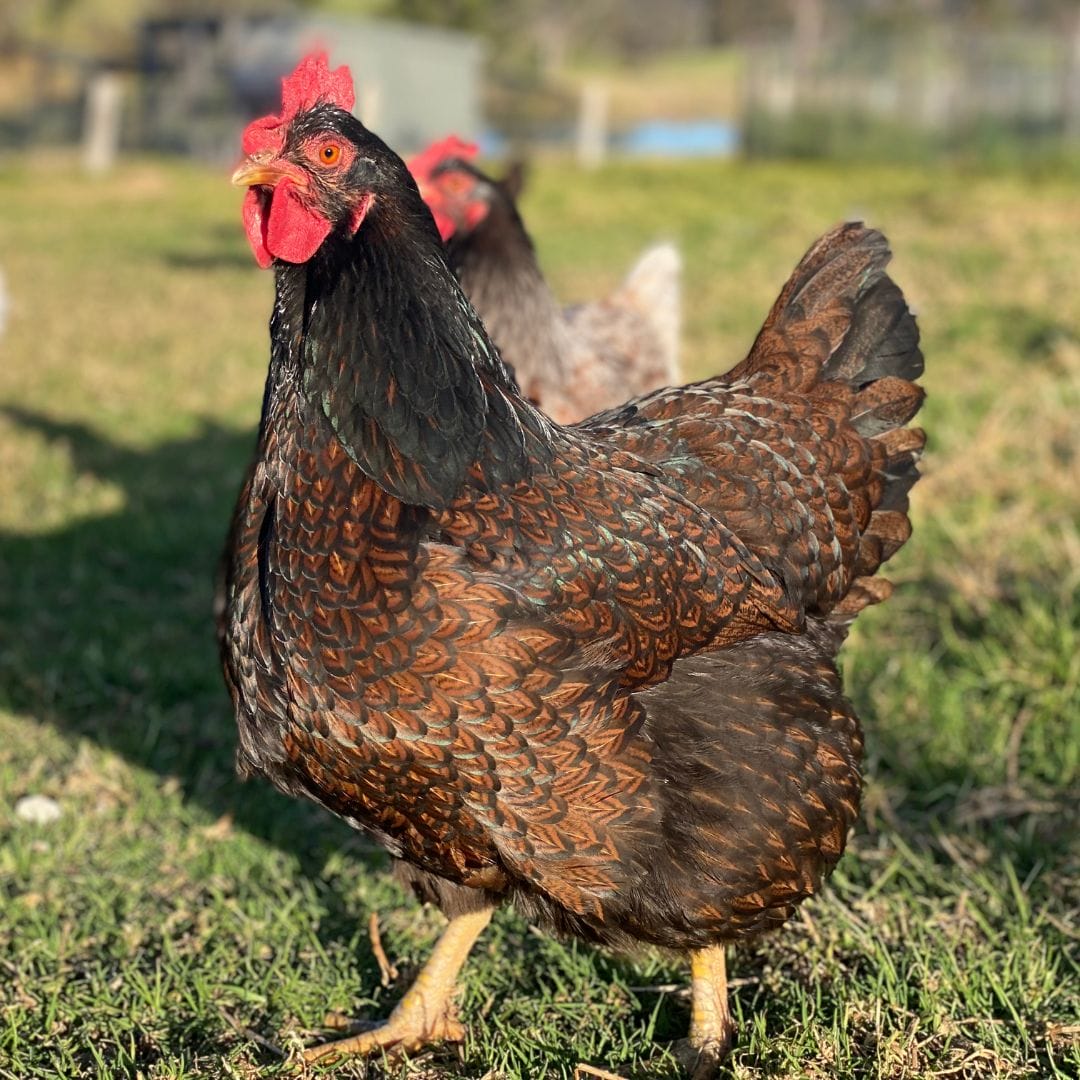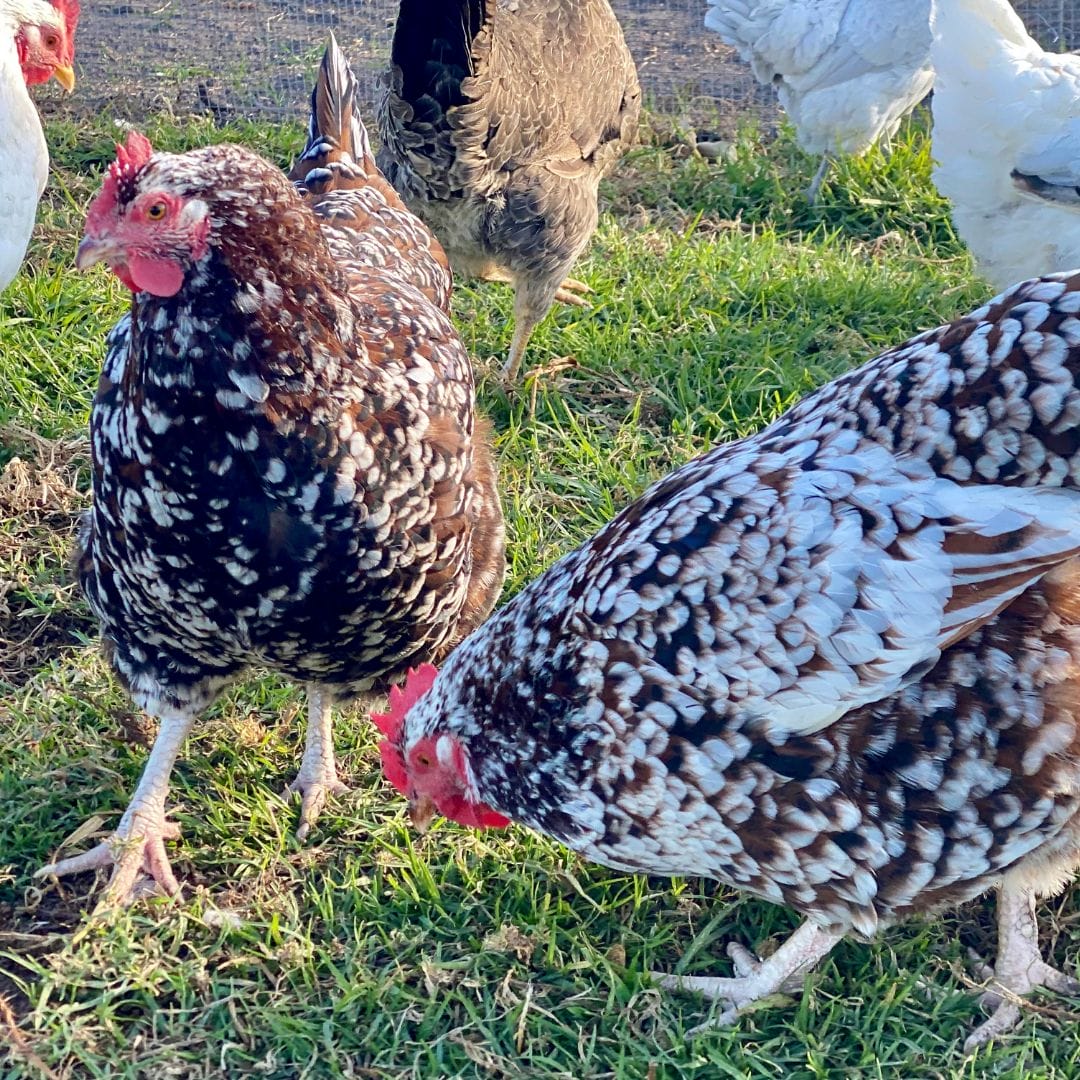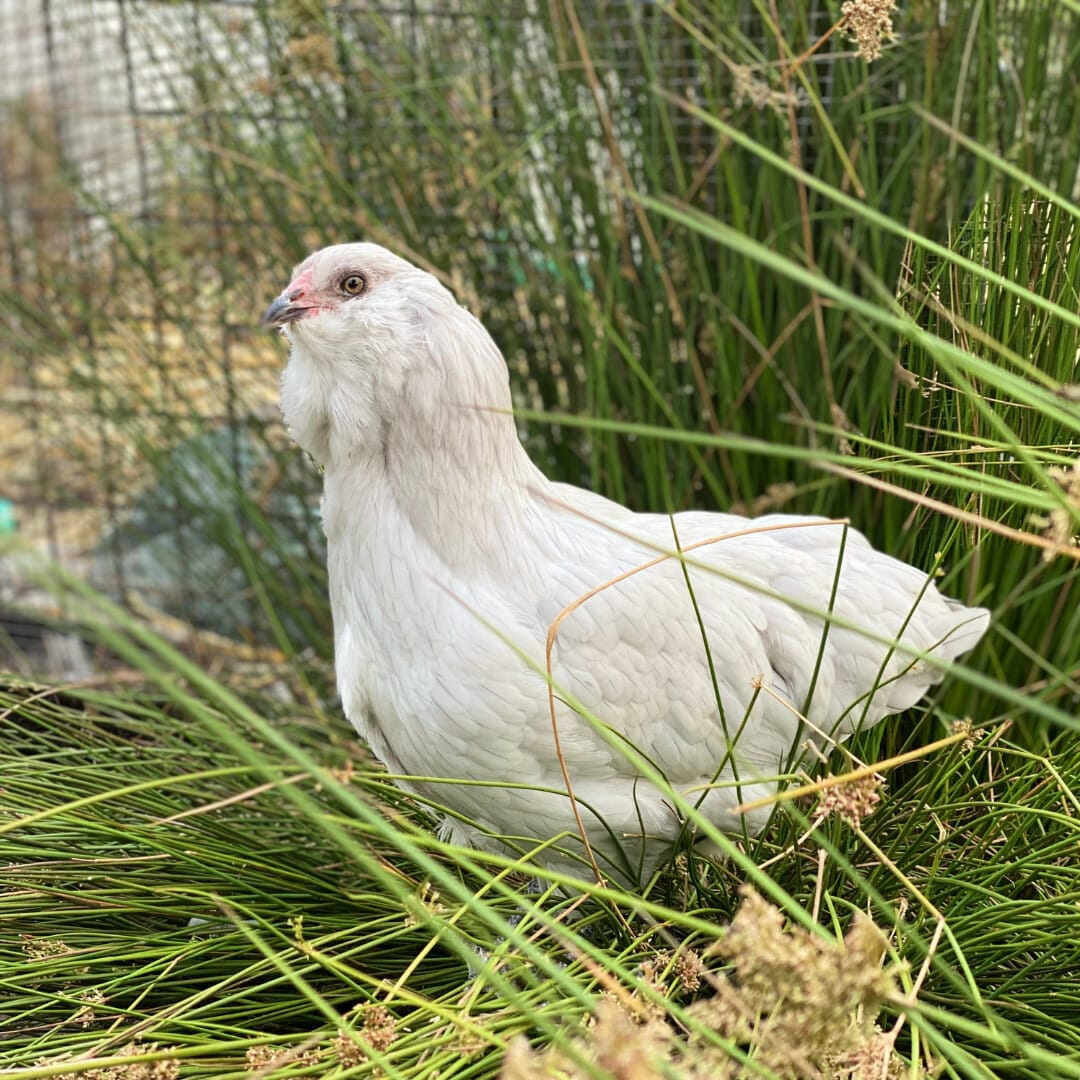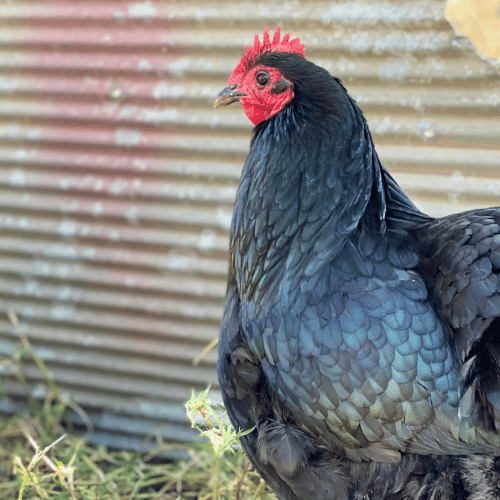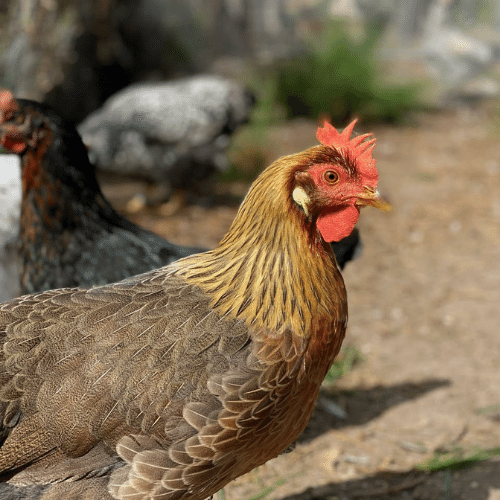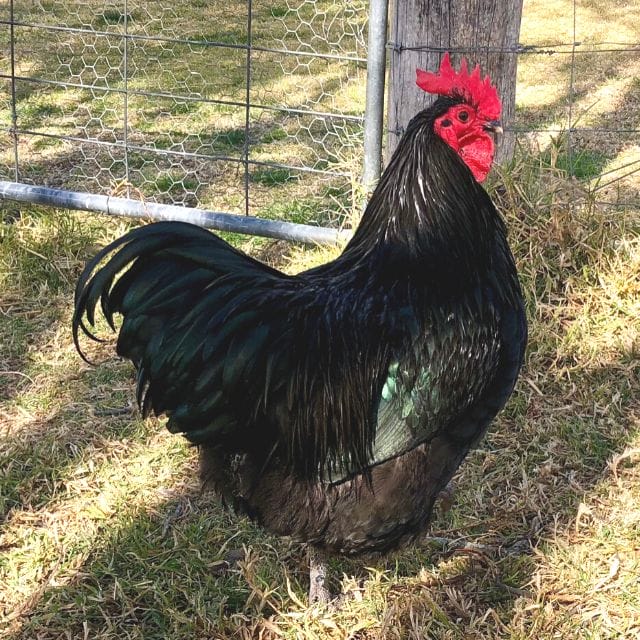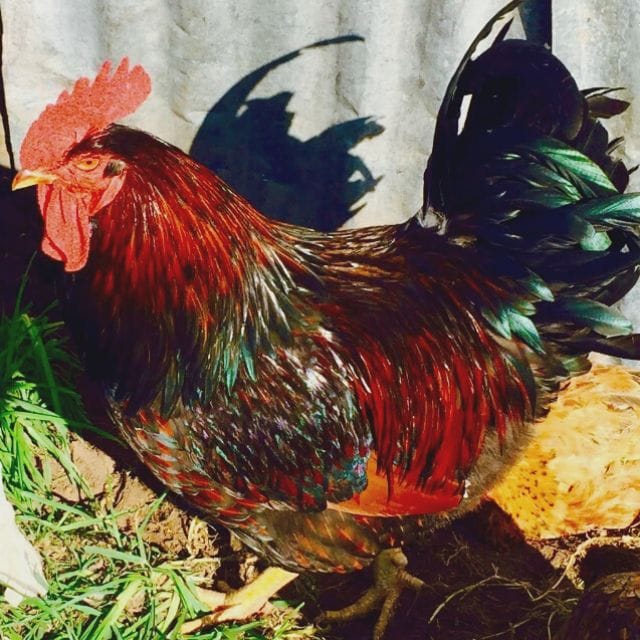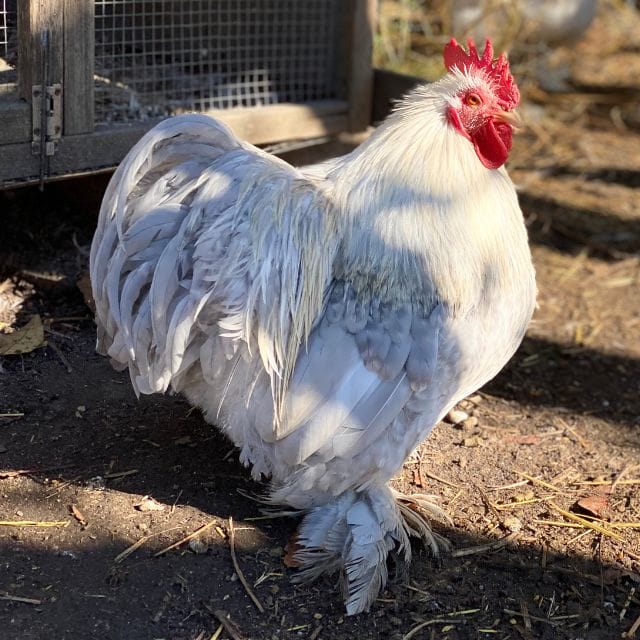CHICKENS
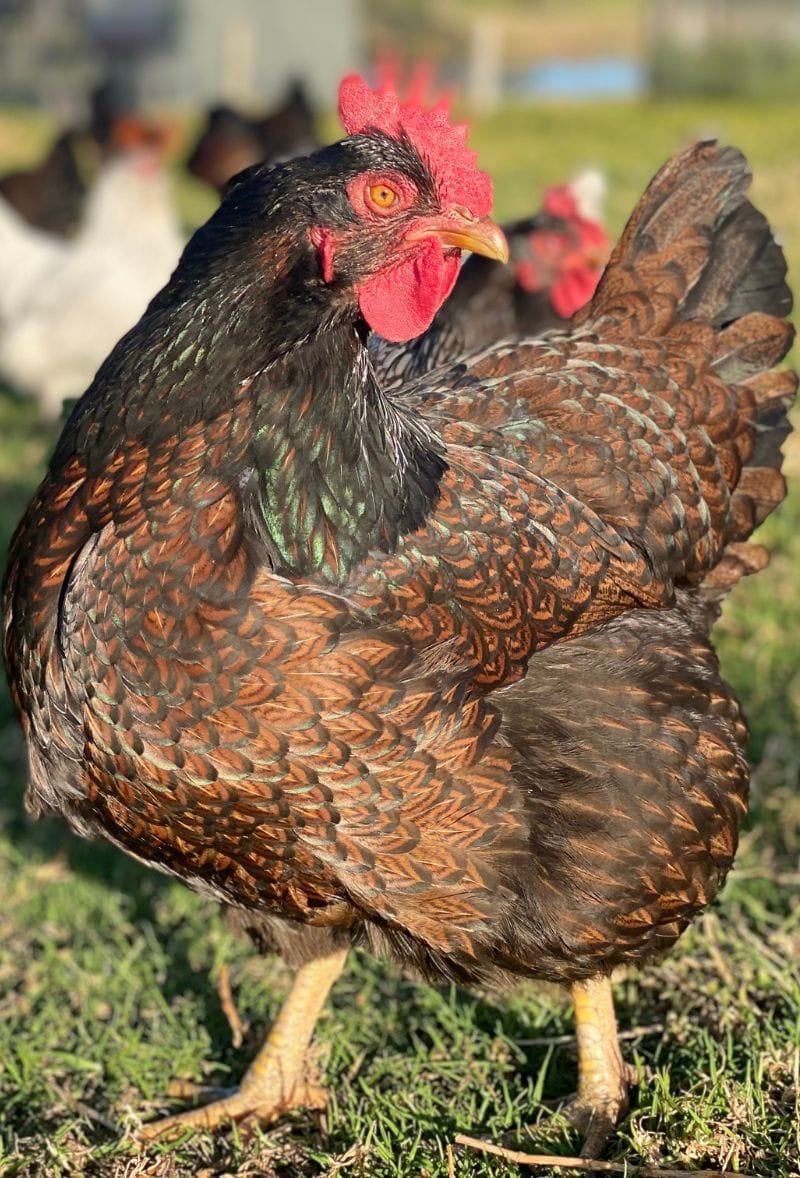
I’ve been breeding heritage chickens for over ten years.
I commenced breeding for myself but soon discovered there is a great interest in heirloom (heritage) chickens and so I expanded my breeding to include others. We don’t breed large numbers at all, in fact we generally breed to order, with the vast majority of our customers letting us know before spring how many and what breeds they are interested in. We don’t breed for show by the way but all our chickens are pure-breeds and true to the standard.
Our greatest joy is to be able to offer a mixed flock of quality, well-socialised and healthy birds to our customers. We generally sell a minimum of 3 pullets and a maximum of 7 per family, (with a maximum of 3 birds of any one breed included), that way we can keep our focus on the animals and assist more people to find their flock at the same time. Take a look further to see what breeds we keep and what breeds we are breeding this year.
FAQ’s
What heirloom breeds do we keep?
Our core heritage/heirloom breeds are Silver-lace Wyandotte, Australorp (Black, Blue and Splash), Speckle Sussex, Brown Leghorn and Pekin bantams. We run other breeds from time to time, such as Araucana, Barnvelder and Cochin. Read more about our breeds here.
What breeds are we breeding in 2024?
This year we are scheduled to breed Barnvelder, Speckle Sussex, Araucana, Australorp (black and charcoal blue), and Brown Leghorn. Pictured L to R. Read more about our breeds here.
“We’ve been buying chickens from Schoolhouse Farm for a years now. They have all been beautiful, well-socialised and super healthy. Deb goes out of her way to match our needs too. We wouldn’t go anywhere else for chooks!”
How is what we do different?
Well, for a start, we specialise in breeding heritage and rare breeds. And because we breed a range of types each year you can choose a mixed-flock of breeds. We are also very animal focused, so the health and quality of our birds is a priority. Plus our birds are heavily socialised, friendly and adaptable, which is important when you are trying to settle a new flock, particularly if you are combining existing and new birds. We also support you to choose the flock that is right for you, help you pick breeds based on your needs and what your set-up is.
One last thing, because we are not breeding to show – seeking specific qualities – we have no need to ‘line-breed’. Rather, we prefer to breed for genetic diversity, ensuring that our roosters and hens come from multiple stock lines, which we believe is good for the health of the off-spring.
What is the advantage of a mixed flock?
Different breeds have different characteristics and personalities. For example different breeds lay more heavily at different times of the year, some are better in the heat or cold, some are considered ‘duel-purpose’ birds, meaning they can be used for eggs and meat, some like to go broody (clucky), meaning they make great mothers, whilst others lay dark brown, bright-white or even blue eggs. Breeds look different too, which means you can have a palette of colours and patterns in your hen house. And finally they come with different temperaments, with some being very cheeky, some inquisitive and some more people-orientated.
When are chickens available to purchase?
We breed in spring, just how nature intends it to be. This is when our breeding stock are at their strongest, fertility is highest and the weather is perfect. This means breeding from late August through to October (at the latest), with stock reading early summer. Pullets are generally sold at 14-16 weeks, when they are strong and confident enough to fend for themselves in their new home.
How many chickens do I need?
If you are wanting chickens for eggs alone then I would recommend a flock of 3-5 for 2-5 people. 5 heritage hens is a good number to keep you in eggs – remember that they will not lay as often as the commercial cross-breed layers you might be familiar with but they will lay for longer and live healthier reproductive lives.
It is also important to ‘know your limits’, particularly when first starting out. You are better-off commencing with a smaller number of hens (minimum of 3) and sticking to less-complicated breeds (for example those that do not go broody, AKA ‘clucky’). You can always add stock, in-fact there are advantages to doing so yearly but keeping numbers manageable at first is wise, until you build your knowledge & confidence.
Space may also be a limiting factor, as a general rule each bird needs 30cm of night-time roosting perch and 1m2 square of space in their home-yard -this is a basic need, the more space the better, with extended runs being a good option for the day time if possible.
Should we/can we keep a rooster & can I purchase one with my hens?
Experience has taught me again and again that hens in a flock with a good rooster are more confident, relaxed and productive. Roosters are both providers and protectors, they show the hens where food is, keep the ‘pecking-order’ in check and they warn of pending danger from predators (and if needs be will sacrifice themselves to save their hens). If you think about this from the flock’s point of view, it makes sense. And goes without saying that if you want to breed your flock using your own fertilised eggs then you must have a rooster.
There are reasons for not keeping a rooster too, some legal -you cannot keep a rooster if you are within town limits (check with your Council) – some personal, some people simply don’t like them or the way they ‘take advantage’ of the hens. And of course … there is the crowing!
If you do decide to keep a rooster choose one that suits you and your hens. We are happy to talk to you about your needs and what rooster may suit. You can purchase a cockerel (young rooster) at the same time as your hens or after your hens have settled. Remember too, roosters come in an array of colours and sizes, from large ones like Australorps (L), medium breeds such as Barnvelder (M) to small compact versions such a Pekin Bantams (R). All will add character and glory to your flock but it is your decision & not one to be taken lightly.
How much do they cost?
Heritage chickens – Pullets at 14-16 weeks are between $55-$65 depending on age, breed and colouring. Very young pullets (sexed and independent) at 8 weeks of age are $35-40 each.
Unsexed day-old chicks are $15-$20 each. Fertilised eggs are $45-$60 per dozen depending on breed. The price for a rooster is negotiable, depending on how many pullets you are purchasing, breed and age.
Hybrid layers – We sell pullets only, usually 14-16 weeks for $35-$45 – $50 each.
We had the good fortune of purchasing three hens (two Australorps and a Barnevelder) from Steve and Deb in January this year. The moment we arrived at their farm near Quaama to meet the chooks, we knew that Deb and Steve were seriously dedicated to raising their livestock in a way that is truly ethical and intuitive. Their knowledge around poultry breeds, their specific care and how and when we should introduce the hens into an established flock clearly demonstrated how invested Deb and Steve are in providing a service that is more than just a farm gate transaction.
Since bringing our hens home in January we have been delighted with the vigour that they have displayed which we can only attribute to careful breeding and nurture received in the first 16 to 20 weeks of their life.
One of the most satisfying aspects of buying our hens from Deb and Steve was their willingness to provide thorough and responsible aftercare at the drop of a hat, both via phone and email. It is this generous sharing of knowledge, that they have obviously amassed over many years of raising poultry, that has really made caring for our hens so easy!
Deb and Steve have found themselves lifelong customers in us, and we have no doubt that they will continue to grow a very strong reputation for supplying a service that is second-to-none.
We feel so grateful that we found Schoolhouse Farm. We wanted our own little flock of mixed heritage hens, so we were very excited when we discovered a breeder who specialised in a range of pure heirloom hens for the ‘back-yard’. Deb and Stephen helped us choose the mix of hens that would work best for our flock and for us. It’s been such a successful project – happy hens, happy us and plenty of eggs for our family.
Are the birds vaccinated?
All our birds are vaccinated against Marek’s, which is a disease that has occurred before with devastating impact in the Bega Valley. There is no cure for Marek’s Disease, with mortality rates extremely high.
Do we sell day-old chicks and fertilised eggs?
We do sometimes sell day-old unsexed chicks by prior arrangement. The same goes for fertilised eggs; we release some for sale when our orders are filled or when we are in a different breed rotation. If you are interested in either please email me on info@schoolhousefarm.com.au. We will also consider special orders if given enough notice.
Do we sell ‘layers’?
Well, yes and no. All chickens lay eggs but many people are familiar with what are commonly called ‘layers’, the commercial hybrid or cross-breed chickens that can be purchased from produce stores. Hybrid are not purebred duel-purpose (eggs and meat) chickens like heritage birds, they are a hybridisation developed in the late 1940s when consumer demand drove the development of two separate lines of birds, one for meat and the other for eggs. This is how the specialist ‘layer’ came about, the one that most are familiar with being the ISA Brown.
Whilst hybrid layers have their place, our commercial egg-production industry relies almost exclusively on them for example, they have taken-over the chicken industry, which comes with its risks, just like an over-reliance of limited genetic seeds does in cropping. Remember too, that heritage birds can live longer than 10 years and will lay throughout their lives, whereas hybrid-layers, because of the numbers of eggs they lay in the first 2 years of their lives, can stop laying at 2-3 years of age.
We made the decision early to stay away from commercial layers but we do have our own range of mixed-breed chickens, their background somewhere between heritage chickens and specialist layers. They are hardier than commercial layers for instance (they live longer and have less reproductive health issues), they still lay a lot of eggs per year (200-250 in their first year) but they do not lay, or live, as long as heritage chickens.
Pleasingly the layers we breed also come in a range of lovely yet unpredictable colours, which many people find appealing. As a rule we choose not to sell ‘layers’ on their own, our primary purpose is to breed heritage chickens, but we do will sell them as part of a mixed flock if you purchase heritage chickens from us. And, because they have all been raised together – heritage and hybrids – you will have no issues with homing them together.
How much do they cost?
Heritage chickens – Pullets at 14-16 weeks are between $35-$55 dollars depending on age, breed and colouring. Unsexed day-old chicks are $15 each. Fertilised eggs are $40-$60 per dozen depending on breed. The price for a rooster is negotiable, depending on how many pullets you are purchasing, breed and age.
Hybrid layers – We sell pullets only, usually 14-16 weeks for $35-$45 each.
How do I order or purchase chickens
Drop me an email at info@schoolhousefarm.com.au and let me know what breeds you are interested in and how many and we will take it from there.
Please note, that we sell a minimum of 3 and generally a maximum of 7 (with 3 of any one breed) per order.
By the way, cannot guarantee that your order/wish-list will be filled exactly as you want, this all depends on fertility levels and sex-ratios but we will do our best to match your wishes or suggest suitable substitute.
